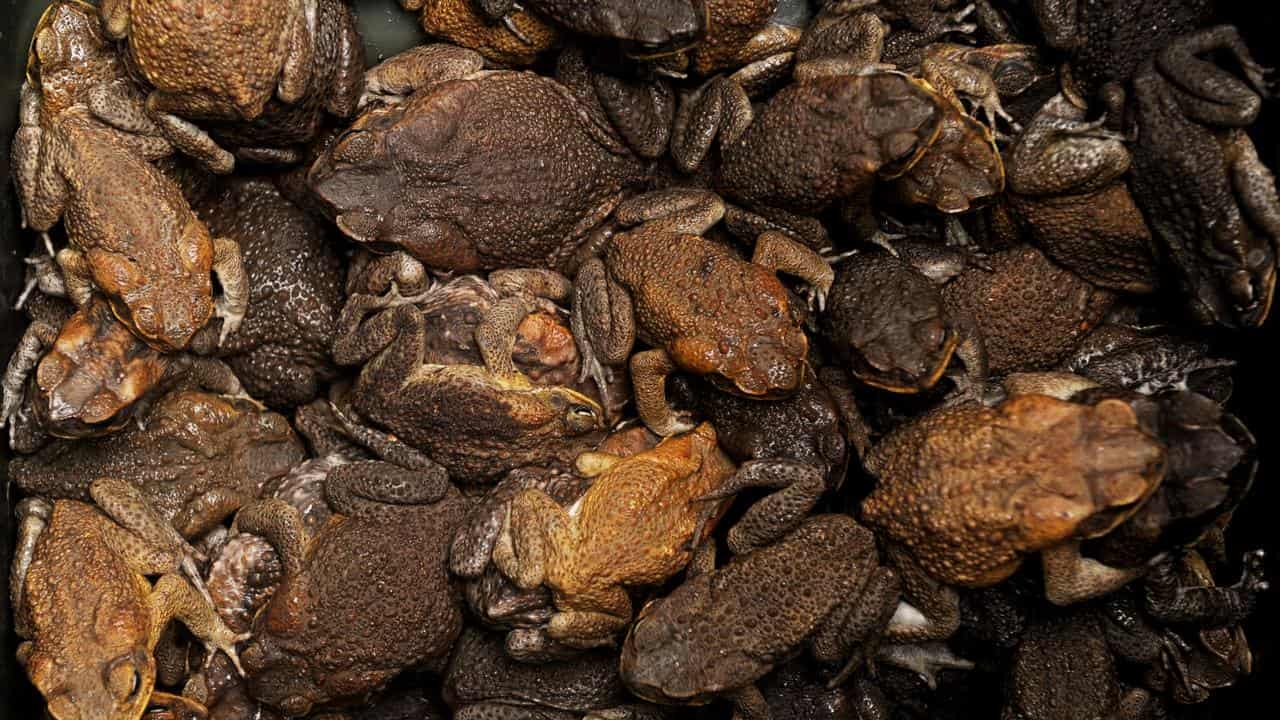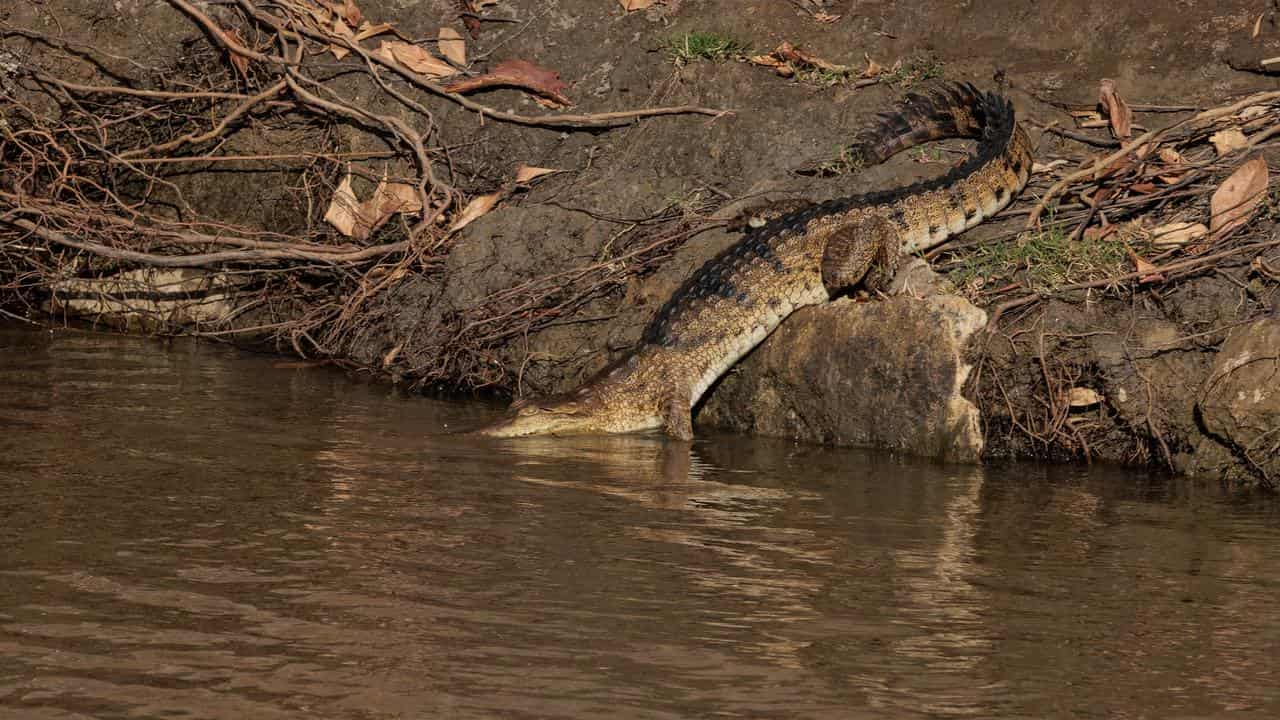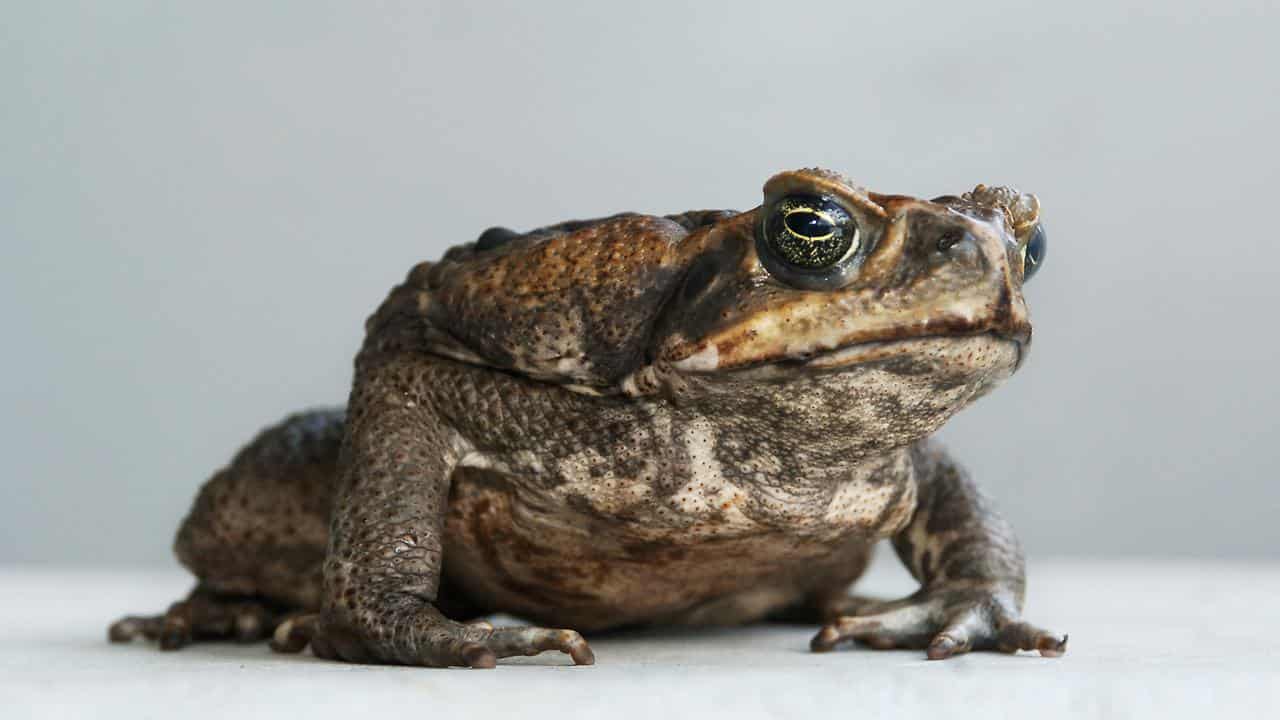
As cane toads spread across northern Australia, Indigenous rangers and scientists have worked out how to stop freshwater crocodiles from eating the toxic creature - by giving them food poisoning.
Freshwater crocodiles are a culturally significant animal in the Kimberley region of Western Australia.
"They hold the balance in the ecosystem in the water," Bunuba ranger Lionel Marr says.
But freshwater crocodile populations are declining due to the invasion of delicious cane toads, according to researcher Georgia Ward-Fear, who's lead author of a research paper based on a trial in the Kimberley.

"Some populations have declined by 90 per cent, many have gone locally extinct," she told AAP.
Dr Ward-Fear, from Macquarie University's School of Natural Sciences, said there's been a lot of work to mitigate the impact of cane toads but so far nothing has helped to eradicate the introduced amphibians.
Instead, researchers turned to preventing native predators, like the saltwater crocodile, from eating cane toads, with fatal results.
"We're working with the predators directly using taste aversion and taste aversion, in a nutshell, is food poisoning," Dr Ward-Fear said.
"If a consumer eats something it makes it sick, then it will associate the taste of that food with the symptoms that it experienced and then it won't re-ingest that substance again."
Dr Ward-Fear and Macquarie University researchers, alongside Bunuba Rangers and the WA Department of Biodiversity, Conversation and Attractions, worked together to elicit a food poisoning response among saltwater crocodiles.
The team created almost 2400 baits using cane toad carcases, with the toxic parts removed, and injected them with lithium chloride before hanging the morsels over bodies of water.

Chicken carcasses, free of the nausea-inducing salt, acted as control baits.
During the five-day trial, Bunuba ranger coordinator Paul Bin Bisu said the crocodiles changed their habits.
“The first three days we noticed the crocodiles were taking the cane toads then they would go away,” he said.
“Then we noticed they would smell the cane toad before eating, and on the last day we noticed that it was mostly the chicken necks getting eaten.”
The trial took place in the months before the end of the dry season in the Kimberley when crocodiles and cane toad habitats overlap as rivers and other water bodies dry out.
When the cane toads arrived, there were fewer freshwater crocodile deaths.
“After the program, we see that the populations of the crocodiles are coming back, which is a good thing to see,” Mr Bin Busu said.

Dr Ward-Fear said the study couldn't have happened without input from all the collaborators.
"The Bunuba people have such deep knowledge and skills related to that Country, the species we're working with, and importantly the areas we need to target based on their knowledge of the populations and the local ecology of the area," she said.
"Their knowledge is absolutely crucial to the success of these strategies because they're the people directing the on the ground planning ... based on where we should do it and at what time of year."
The team's findings were published in the Royal Society's biological research journal, Proceedings of the Royal Society B.









